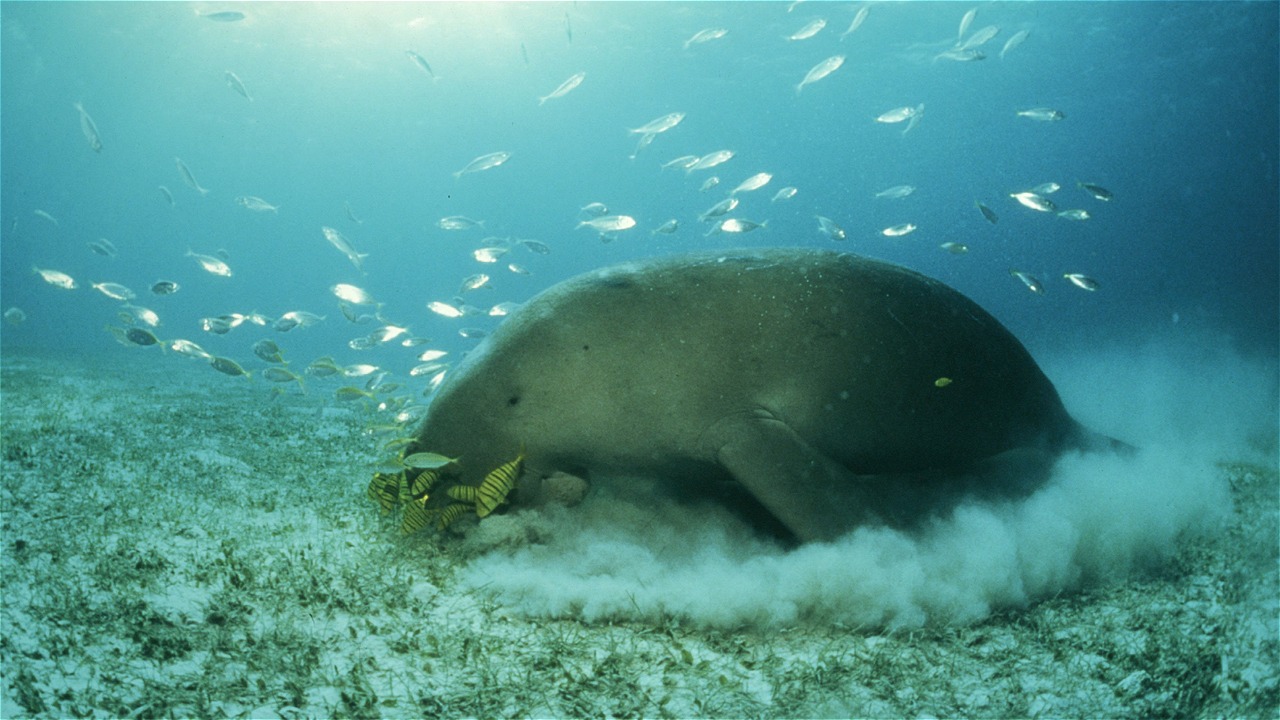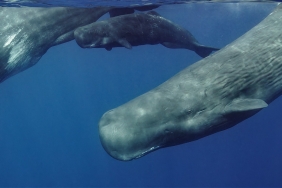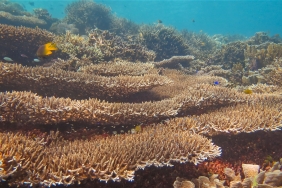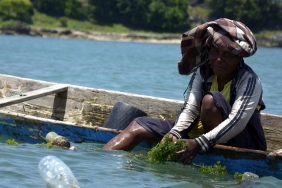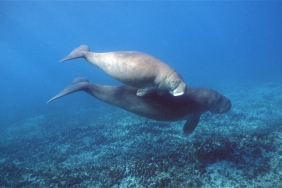TOGETHER PRESERVE DUGONG AND SEAGRASS HABITAT IN INDONESIA
By: Casandra Tania (Marine Species OfficerI) and Adella Adiningtyas (Marine & Fishery Campaign and Social Media Assistant)
The population of dugong in Indonesian waters is still uncertain due to the limited population status studies conducted. With various and increasing threats, Dugong as a protected marine animal is now pressed for existence and requires an integrated effort between related parties.
Earlier this year, in the corridor of the Dugong and Seagrass Conservation Project (DSCP), WWF-Indonesia together with the Ministry of Marine Affairs and Fisheries (KKP) conducted a series of events to develop a Communication and Advocacy Strategy for Dugong and Seagrass Habitat Protection Efforts. Focusing on four locations in Indonesia, namely Bintan, West Kotawaringin, Tolitoli, and Alor, as well as the national level, the communication strategy development activities were held on January 9 - 11 in Bogor and January 12 in Jakarta and were successful.
"The environmental community can help disseminate information on dugong and seagrass habitat conservation in Indonesia. The delivery of information needed in each region is certainly different because the conditions faced are different. So an effective communication strategy is needed so that any information provided can change attitudes and views so that the objectives are well conveyed, "said Mr. Andi Rusandi, Director of Conservation and Marine Biodiversity, KKP.
While in Bogor, workshop participants determined the communication objectives, key messages, target audiences, and communication media to be used going forward. Participants also determined the schedule of activities and designed an evaluation plan for the strategies that have been developed. Some interesting key messages have been formulated such as "Seagrass Ecosystems are as Important as Mangrove Ecosystems and Coral Reef Ecosystems" from national, "Sustainable Dugong and Seagrass, Bintan Gemilang" from Bintan, "Hunting and Consuming Dugong and Destroying Seagrass Meadows Violate MUI Fatwa" from Kotawaringin Barat, "Dugong Preserved, Seagrass Balanced, Fishermen Catch Increased" from Tolitoli, and "Keep Dugong, Tourists Satisfied, Community Prosperous" from Alor.
Mr. Onesimus Laa, the head of the Alor fishermen group, has a desire to preserve the dugong in Alor Waters by encouraging people there to fish using environmentally friendly fishing gear. He also believes that if we are kind to the dugong, it will also benefit the fishermen. One of them is through responsible tourism activities. In line with Mr. Onesimus' hope, Wawan Ridwan, Director of Coral Triangle WWF Indonesia said, "There is no creature that does not provide benefits for human life. The existence of dugong and seagrass beds that are maintained will certainly provide benefits to the community."
Going forward, WWF Indonesia will support the implementation of DSCP in 4 locations together with KKP, Indonesian Institute of Sciences (LIPI), Bogor Agricultural University (IPB), and other relevant partners. The Communication Strategy document prepared will be a joint reference for the parties to build public awareness to reduce pressure and threats to dugongs and their seagrass habitat.

